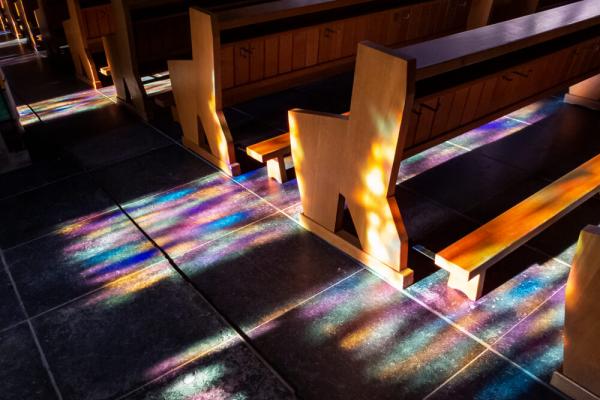The women pastors I know began to whisper last week. Rev. Dr. Amy Butler, the first woman pastor of the progressive bastion of the mainline church, Riverside Church in New York City, was stepping down.
If Butler was a man my first guess would have been his dismissal was a result of sexual transgression. My next guess would be a financial misdeed. But because Butler is a woman, those were far from my thoughts as to what happened at Riverside. Instead, I asked: Was the environment so toxic that she could no longer maintain her mental health in the job? Was she sexually harassed? Was latent sexism hanging around the church?
A New York Times report has revealed that all of this was part and parcel of her tenure at Riverside. Unwanted gifts. Sexually suggestive emails. Hypocrisy. Refusal to change. Small and powerful factions. Gaslighting.
I don’t know a woman pastor who has not experienced some form of sexual harassment, bullying, or intimidation at the hands of a person in church. But most of us are not prepared for how to respond and our churches are not trained on how to be advocates for us.
When it comes to sexual harassment and bullying, pastoral ministry is a special kind of hell as a profession. Most women, women in any profession, do not report incidences of sexual harassment. They are hard to document and even more difficult to prove. Reporting is costly interpersonally and for a woman’s career. Women weigh the balance.
But in ministry, while many churches have clear protocols as to reporting abuse of church members, it isn’t as clear how to respond to sexual harassment and bullying of the pastor. I’ve been trained multiple times on safe sanctuaries policies. Each time I am told of the boundaries I must maintain to protect people in my congregation, how to protect people from me. Not once have I been instructed on how to protect myself.
And I have needed this information. I, too, have received unwanted gifts that pushed the bounds of my comfort. I have been kissed on the face, had a man put his arm around my shoulders and leave it there as he spoke to me. I have had my butt fondled and grabbed by a man newly out of sedation from surgery. I’ve found myself positioning others between me and men who are perennial invaders of personal space.
It’s difficult to force someone to leave the church. “Talking too close” or “lingering hugs” are considered a painful reality for most women in ministry I know, not a reason to eject an individual from the community. In the church, we emphasize grace and forgiveness, the ability for people to change, and pastors are those who shepherd this hope into being. We try and try again.
The stark reality is that our salaries come directly from one source – people wanting to support our ministry as part of the church. Human relations (sometimes called Pastor-Parish Relations) are made up of volunteers, many who are not trained or prepared for this kind of conflict.
Women pastors bear the costs of this arrangement in our bodies, the victim being us, our mental health and physical wellbeing, our relationships and our families.
When I heard that Butler was appointed the first woman pastor of Riverside, I thought she broke the stained-glass ceiling. Instead, the church threw her off the stained-glass cliff. The phenomenon of the glass cliff is one documented throughout the working world. Women are invited into senior-level leadership only at times of crisis, when intractable problems, often caused by male predecessors, cannot be solved. There’s nothing to lose because things have hit rock bottom.
Rev. Heidi Carrington Heath sees the glass cliff in the non-renewal of Butler’s contract.
Women are held to a different standard (especially when we are the first). We have broken the stained class ceiling, so we are expected to be exceptional, extraordinary even. We are expected to resolve conflicts, and clean up messes we did not make in half of the time it took the men who preceded us to make them. We are expected to effortlessly juggle leadership (but not too much), nurturing (but not be too soft), and family (but without asking for too much time) without complaint. As soon as we enact too much change, push to make the system healthier, preach a sermon seen as too “political,” or don’t clean up the mess quickly enough, we are pushed right off the cliff. A narrative is then written about how it “wasn’t a good fit” or “she just couldn’t hack it.”
Sexual harassment and bullying are epidemics in women’s church leadership. As it was for Butler, most of us try to work through the appropriate channels as microaggressions pile on, one or two bullies make life miserable, and constant fear of being hurt fills our days. It is time for the church to make anti-sexism and anti-bullying a priority not only for people in the pews but also for its pastors.
Got something to say about what you're reading? We value your feedback!







